In and around the Indian River Lagoon
Jane Thomas · | Environmental Report Cards | Applying Science | Learning Science |On Wednesday, January 20, we were lucky enough to get an up close and personal look at the Indian River Lagoon from top to bottom. Heath Kelsey, Bill Nuttle, Caroline Donovan, and myself started the day with a visit to the Marine Discovery Center (MDC), a not-for-profit that aims "to protect and restore the Florida coastal and Indian River Lagoon ecosystems through education, research and community stewardship." The plan had been to go kayaking through the mangroves that make up this northern part of the Indian River Lagoon system, but the weather was a little too brisk even for us northerners.
Instead, we went on a walking tour with Executive Director Chad Truxall and tour guide Lisa Mickey. We learned about the many and varied restoration and education initiatives being undertaken by MDC in the area, including their oyster recycling program which collects oyster shells from local restaurants and uses them to restore oyster reefs and shorelines – something very similar to what the Oyster Restoration Partnership is doing here in Maryland.
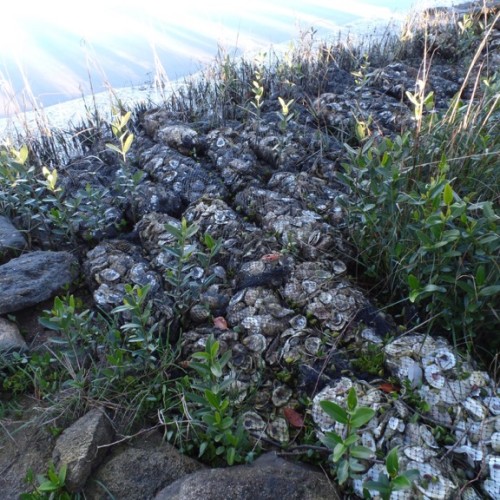
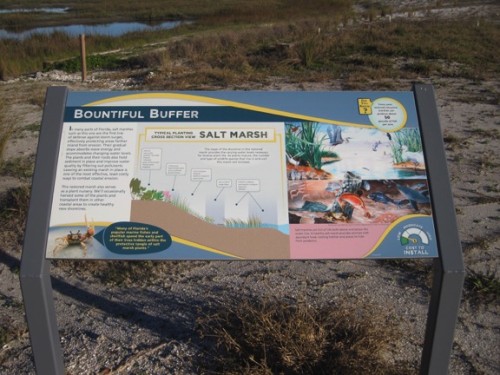
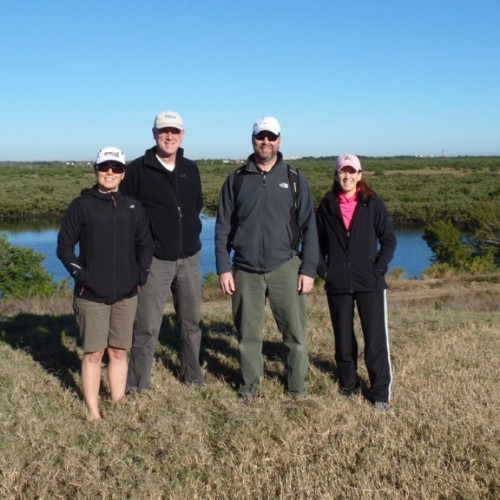
After leaving the MDC, we drove south to meet with Dr. Leesa Souto, Executive Director of the Marine Resources Council and our host for the Report Card Workshop. We met Leesa at the Ted Moorhead Lagoon House, which was our venue for the workshop and which is located directly on the Indian River Lagoon at Palm Bay, complete with dolphins swimming by and ducks foraging along the shoreline.
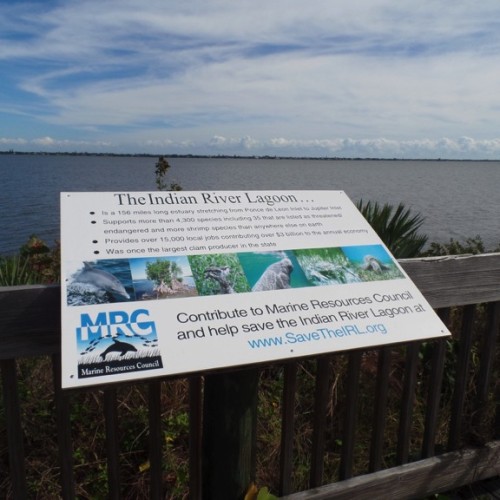
We rounded out our introduction to the Indian River Lagoon by driving to the southern end at Stuart where we boarded “Sirenia”, a 35-foot pontoon boat operated by Captain Nancy Beaver of Sunshine Wildlife Tours. We were joined by the Indian Riverkeeper Marty Baum. Nancy and Marty are a wealth of knowledge about the Indian River Lagoon, with decades of experience on and around the Lagoon. We motored out of the St Lucie River into the Lagoon proper, where Nancy and Marty gave us a thorough introduction into the issues facing the Lagoon, as well as the outstanding natural resources of the system. We rounded out our field trip with a motor past Bird Island, which (with the help of Nancy) was recently designated a critical wildlife area, which is the first wildlife area in over 20 years to be classified as such by the state of Florida.
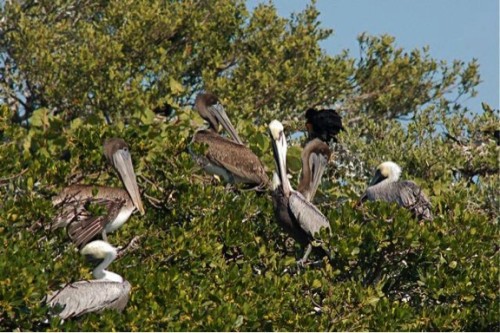
All in all, we had a fantastic day learning about the Indian River Lagoon and it put us in a great position to start the Report Card Workshop (to be featured in a separate blog) the following day, armed with our newfound knowledge!